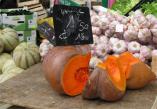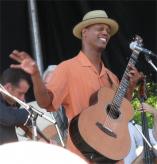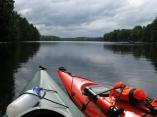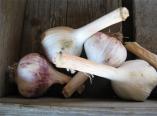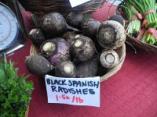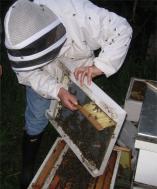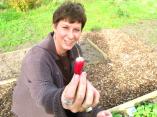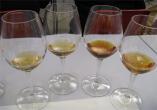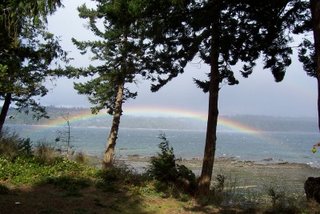So: the Words on the Water writers festival (check out the virtual tour of Campbell River!) was a good old time. We arrived, on a day of brilliant sunshine, at 8:30 sharp and purchased $40 worth of tickets for all the day’s readings, of which there were eight, in four sessions. We heard that the Friday night gala had been a success, and were offered a few newly added (thank you fire department) seats for the Saturday night literary cabaret. But in the end we decided against staying for the evening as well, since all the readers were the same as for the daytime sessions, and we felt in our bones – and a few other places – that sitting through the first 8 hours of readings was probably enough.
Evelyn Lau kicked things off with some poems from her new collection, Treble. She talked about the autobiography of writing: even when she’s writing fiction, she said, she’s in the story. She came across well and was warmly received by the audience; though she had some serious zing in some of her poem endings I opted to spend my cash instead on another gorgeous Gaspereau poetry collection by Jan Zwicky, Thirty-seven Small Songs & Thirteen Silences. As she’d been asked, she talked a bit about philosophy, music and poetry and how these come together for her; and she quoted Don Paterson, in an introduction to his translations of Spanish poet Antonio Machado, who’d observed that Spanish is a guitar, while English is a piano.
We had a break then, with treats supplied by Save-on-Foods, the official festival sponsor. Although I’d raised an eyebrow when I saw the supermarket was also selling the books, after a day feeding on their goodies (including a very nice lunch buffet) I came round. But it would have been nice to see a local independent bookseller, if there is such a thing in Campbell River, reap a little of the benefit of the event, which saw about 150 people attend the day’s readings.
We heard some prose then, from Claudia Casper, and some poems – read in his characteristic moaning growl- by poet, typographer and bringer of tales from the Haida, Robert Bringhurst. One of his suggestions was that all Canadian children should be required to learn at least one indigenous language so that they may read, in their original words, stories in which humans are not the most important elements.
And stood in a long long queue for lunch, after which we had more prose, from Annabel Lyon who talked about music, prose and law school, and read a bleak little tale she’d gleaned from a murder trial she’d once watched; and some new and hilarious writing from our favourite storyteller David Carpenter.
Another break and we sped toward the finish with poetry: first, Gregory Scofield demonstrated that had he chosen another path he could easily charm the words from the trees as a singer. Then Patrick Lane wrapped things up with a reading from his memoir and a few newer poems. He remarked on once being stunned to discover that a metaphor he was teaching about a wren was lost on a group of first year university students, only a couple of whom were aware that a wren was a bird.
We enjoyed a sunny afternoon drive back to Courtenay, where we stopped in to enjoy a bit of gin and some patatas bravas and some spicy squid in garlic yogurt at the Union Street Grill and Grotto before pressing on to Fanny Bay to put our feet up and rest our weary heads. In the morning we scooted back down the island, pausing to make a side trip to Thetis Island for lunch, and then on to Victoria in the sprinkling rain.
